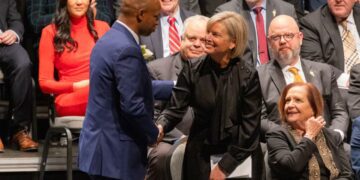In 2000, columnist David Brooks wrote Bobos in Paradise, hailing the dawn of a new phase in America’s longstanding story of meritocracy. The “bobos” were a peculiar breed — part bohemian, part bourgeoisie — blurring class divides in a way that would introduce a new form of enlightened, activist citizenship in a country with an otherwise ambivalent middle class.
“The bobos didn’t necessarily come from money, and they were proud of that; they’d secured their places in selective universities and in the job market through drive and intelligence exhibited from an early age,” writes Brooks in a retrospective essay at The Atlantic. “… X types defined themselves as rebels against the staid elite. They were – as the classic Apple commercial had it – ‘the crazy ones, the misfits, the rebels, the troublemakers.’”
It’s the same group that researcher Richard Florida famously called the “the creative class” – educated upstarts who could spin magic and mystery from their ideas and initiatives, transforming enterprises and institutions across whatever cities and streets they touched.
More HERE







